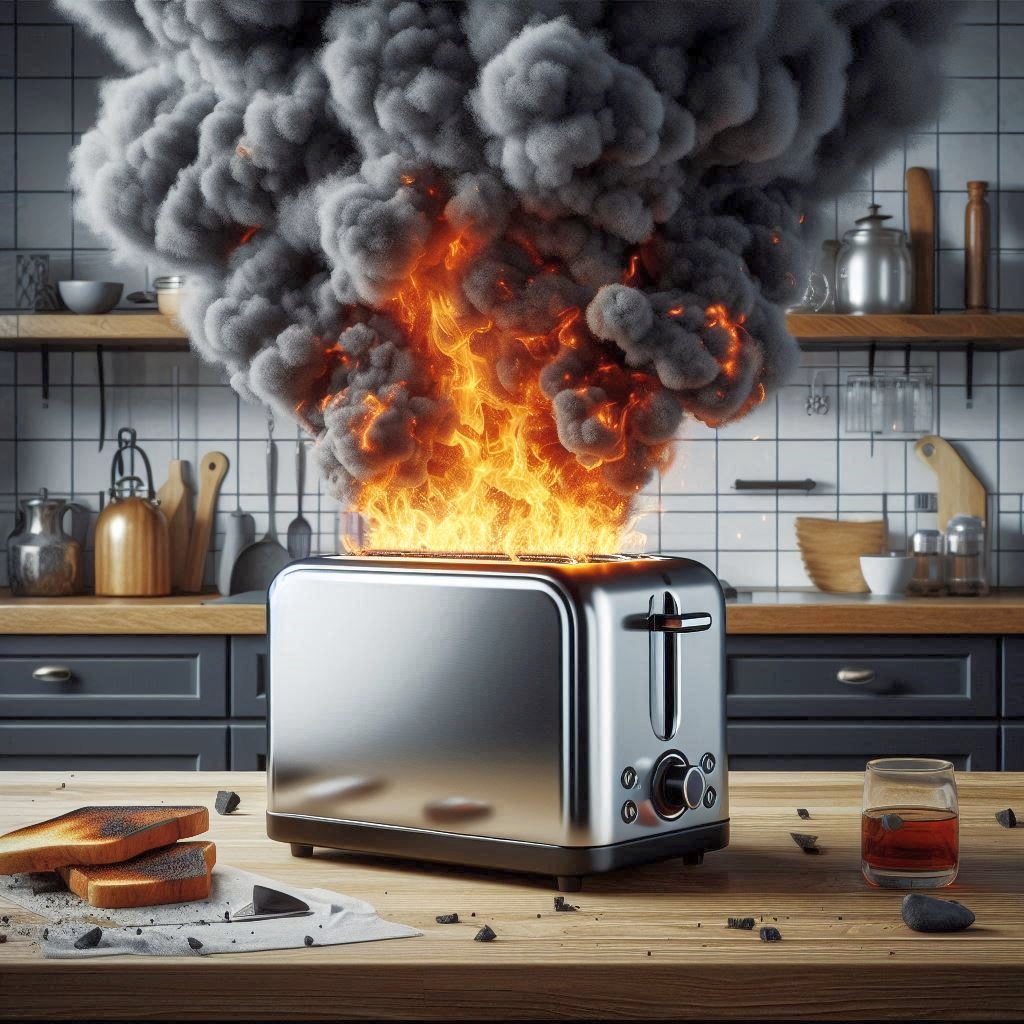
A Relatable Beginning: The Kitchen Conundrum

Imagine this: you’ve just moved into your first apartment, and the excitement of newfound independence is electrifying. However, there’s one small problem—you’re absolutely clueless in the kitchen. The thought of cooking for yourself feels like embarking on an intricate science experiment, filled with potential disasters. This is where I found myself a few years ago, staring at a pristine kitchen like it was an alien spaceship.
One of my earliest and most memorable attempts at cooking involved a simple, foolproof recipe: boiled eggs. How hard could it be? I confidently filled a pot with water, placed the eggs inside, and cranked up the heat to maximum. What followed was a series of unfortunate events, starting with the water boiling over and ending with the eggs exploding one by one. My kitchen looked like a scene from an action movie, and I was left to clean up the aftermath, questioning my life choices. It was a humbling experience, to say the least.

The fear of messing up in the kitchen is something many people can relate to. Whether it’s burning toast or overcooking pasta, the initial challenges of cooking can be overwhelming. The kitchen, with its myriad of utensils, ingredients, and techniques, can feel like an intimidating battlefield. This fear often stems from the pressure to get everything right on the first try, coupled with the worry of wasting food or, worse, making something inedible.
But here’s the thing—everyone starts somewhere. Just like learning to ride a bike, mastering the kitchen requires a bit of trial and error, a few falls, and a lot of perseverance. The key is to embrace the journey, laugh at the mishaps, and celebrate the small victories. Cooking doesn’t have to be a daunting task; it can be an empowering adventure. And as I would soon discover, independence in the kitchen truly is a superpower.
Facing the Fear: My Journey to Cooking Independence

Like many, I once viewed the kitchen as a daunting battleground. The thought of potentially burning food, handling sharp knives, or navigating complex recipes filled me with anxiety. My initial forays into cooking were far from glamorous. There was the time I set off the smoke alarm attempting a simple grilled cheese sandwich, or the instance when I confused salt with sugar, transforming a dessert into an inedible disaster. These early experiences were filled with what felt like insurmountable obstacles, each one reinforcing my fear of the kitchen.
However, it was precisely these moments of failure that began to chip away at my trepidation. I started to see them less as catastrophes and more as lessons in disguise. The first time I successfully chopped an onion without shedding a tear or a drop of blood felt like a monumental achievement. It wasn’t just about the act itself, but the small boost in confidence it provided. Each small victory, whether it was perfectly boiling an egg or mastering the art of flipping a pancake, contributed to a growing sense of cooking independence.

Throughout this journey, I learned that fear is a natural part of the learning process. Embracing mistakes with a sense of humor became my coping mechanism. Laughing at my blunders, like the time I inadvertently created a culinary monstrosity by misreading a recipe, made the process less intimidating. These anecdotes serve as a reminder that nobody starts out as a master chef. It’s the persistence and willingness to learn from each failure that ultimately lead to confidence in the kitchen.
As I continued to practice, the kitchen transformed from a place of fear to a space of creativity and self-expression. Cooking became less about achieving perfection and more about enjoying the process. Over time, the emotional struggle gave way to a sense of accomplishment and culinary independence.
Practical Tips: Turning Challenges into Triumphs

Cooking independently can seem daunting, especially if you’re just starting out. However, with the right strategies and a bit of determination, anyone can master the kitchen. One of the most effective ways to begin is by starting with easy recipes. Simple dishes, such as scrambled eggs, pasta, or salads, can build your confidence and provide a strong foundation for more complex meals.
Another invaluable tip is to use pre-chopped ingredients. Many supermarkets offer pre-cut vegetables and fruits, which can save time and reduce the intimidation factor of preparing meals from scratch. Additionally, opting for frozen vegetables and canned beans can be a great alternative, providing convenience without sacrificing nutrition.
Practicing basic skills is also crucial. Learn how to boil water, use a microwave, and safely handle knives. These fundamental techniques form the bedrock of cooking and will make the entire process smoother. For instance, mastering the art of boiling water enables you to cook pasta, rice, and even blanch vegetables, significantly expanding your culinary repertoire.

Patience and persistence are key. Cooking is a skill that improves with practice, so don’t be discouraged by initial setbacks. Keep experimenting with recipes and techniques, and gradually, you’ll find yourself becoming more adept and efficient. To support this journey, consider using tools that simplify the cooking process. Slow cookers, for example, allow you to prepare meals with minimal effort, while food processors can quickly chop, slice, and dice ingredients.
Specific techniques can also make a significant difference. For example, mise en place—preparing and organizing all ingredients before you start cooking—can streamline the process and reduce stress. Additionally, investing in quality non-stick pans and sharp knives can make cooking more enjoyable and less cumbersome.
Remember, the journey to becoming a confident cook is a marathon, not a sprint. Embrace the learning curve, celebrate small victories, and keep pushing forward. With the right approach and attitude, anyone can conquer the kitchen and enjoy the independence that comes with it.
Empowerment and Encouragement: You Can Do It Too!

Embarking on the journey to culinary independence is not merely about mastering recipes; it’s about discovering a newfound confidence in yourself. I vividly recall the first time I prepared a full meal for my family. The sense of achievement was overwhelming, not just because the food turned out well, but because I had conquered my own doubts and fears. This moment of triumph serves as a constant reminder that with determination and effort, we can overcome any challenge.
For those who are hesitant to start, remember that every great chef began as a novice. It’s natural to feel intimidated, but each small step you take in the kitchen is a step towards self-reliance and empowerment. Start with simple recipes and gradually build your skills. Celebrate your successes, no matter how small they may seem, and learn from the occasional mishaps. These experiences, both good and bad, are invaluable lessons on your path to independence.
To anyone feeling uncertain, know that you have the potential to succeed. Embrace the process, experiment with flavors, and don’t be afraid to make mistakes. Each attempt, whether a success or a failure, brings you closer to becoming comfortable and confident in your abilities. Reach out to friends or family for support, and don’t underestimate the wealth of resources available online, from tutorials to cooking forums that can guide you along the way.
As you embark on your culinary journey, take pride in every meal you create. Each dish is a testament to your perseverance and growth. Remember, setbacks are part of the process, not a reflection of your abilities. Keep pushing forward, and soon you’ll find that the kitchen is no longer a place of uncertainty, but one of creativity and joy.

So, take that first step today. Pick up a recipe, gather your ingredients, and start cooking. Your journey to independence starts now, and with each meal you prepare, you’ll gain not just culinary skills, but a deeper sense of self-assurance and pride. You can do it, and your superpower is just waiting to be unleashed.


